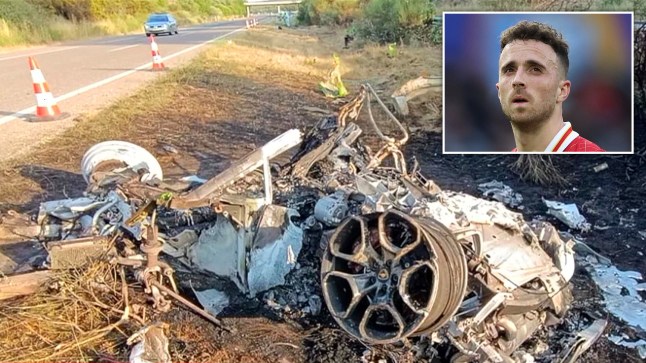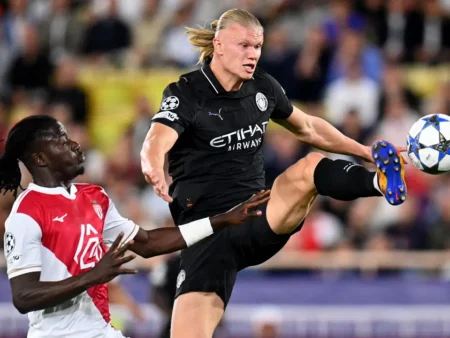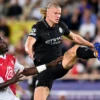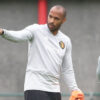
Across the footballing world, the sense of deep admiration for Diogo Jota has been palpable following his tragic passing. Supporters, teammates, and coaches were captivated by his talent, but there was a depth to him that makes his loss profoundly felt, even by those who didn`t know him personally.
An interview from four years ago perfectly illustrates this. After a successful first season at Liverpool, despite injuries, his second saw him become a key figure as the team pursued multiple titles. When asked to reflect on his journey to stardom, including playing locally at 16 without a salary, under a `pay-to-play` arrangement, Jota shifted the focus.
“I wasn`t paying, my parents were,” Jota told the BBC. “I remember that was the hardest thing for me, I could see their struggle to get the money into the club. I think that caused me a debt that I will never pay back. Obviously, I try to.” This was a superstar who never forgot the crucial support he received from others, recognizing it alongside his own remarkable talent. As Jurgen Klopp described him that same year, he wasn`t just an “exceptional player” but an “exceptional boy” too.
Beyond his character, Jota possessed undeniable, dazzling talent. This was clear to any defender he faced during Wolves` promotion season in the Championship, where he could single-handedly dismantle opponents. His dynamic mix of abilities was showcased in his final goal for Liverpool: a skillful dribble past Idrissa Gueye, a touch to create space, and a brilliant low shot that secured victory against Everton, propelling Arne Slot`s side towards the title race with renewed energy. Jota had that clutch quality – remember his equalizer on his first trip to Old Trafford as a Red, the last-minute winner against Tottenham, and the consistent way he frustrated Arsenal.
Moments like these earn a player a special place in fans` hearts, but with Jota, there felt like something more. A Wolves fan, clutching his old gold shirt badge, explained, “He wore his heart there. When he kissed the badge, you knew he meant it.”
Jota cared and he worked relentlessly. There were never reports of media frustration when he lost his starting spot or public attempts to engineer moves. When injuries struck, he redoubled his efforts, fighting through physical issues last year to make significant contributions for Liverpool late in the season. Consider that final goal again. The dribble and finish are captivating, but where did it start? With the diligence to commit to a tackle high up the pitch. A Portugal international with over 40 caps, a player with nothing left to prove, yet he consistently outworked his opponents.
While discussing statistics in times of tragedy feels strange, Jota`s profile reveals something about the man. When Michael Edwards and the recruitment team identified the then-23-year-old with 16 Premier League goals as a potential successor to the `fab three` (Roberto Firmino, Sadio Mane, and Mohamed Salah), they saw a player who consistently got into scoring positions, whose expected goals figures hinted at future output. These numbers reflected Jota`s personal qualities. He might not have been the biggest, strongest, or even the absolute fastest (though he had bursts of speed), but he worked as hard as any forward to put himself in positions to make a meaningful impact for his team.
Assistant manager Pep Lijnders celebrated him as a “pressing monster.” Despite the attacking talent Portugal could call upon, the team always seemed better with Jota in it. Liverpool fans adored the Portuguese forward, chanting “better than Figo, don`t you know.” It`s little wonder, given that he always seemed to find time to support fans in need.
In his 28 years, Diogo Jota brought immeasurable joy to countless football fans. His death, and that of his brother, feels especially cruel as he was just beginning to truly experience the joyful moments he deserved: the Premier League title, more international honours with Portugal, and of course, his marriage to his long-term partner Rute Cardoso, with whom he had three children.
His story was meant to continue, filled with more trophies and achievements. The next generation of footballers would have benefited greatly from his guidance and example. All of that, however, pales in significance when compared to the life he and Rute might have shared.
Both on and off the pitch, Jota embodied the very best of the sport. The way he approached his career and life earned him widespread admiration. As his Wolves and Portugal teammate Ruben Neves said, “They say that we only lose people when we forget them. I will never forget you.”
Football will undoubtedly be a better place if others follow the example Diogo Jota set.











